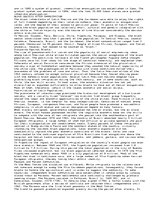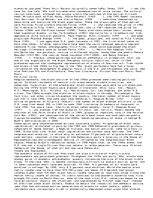-
African-American
Income and Employment.
The economic status of African-Americans was also a mixture of highly visible improvements and persistent problems. Throughout the 1970s and early '80s, blacks made steady gains in academic achievements, greatly increasing the size of the black middle class. In the late '80s, it became increasingly difficult to sustain earlier gains, and in some instances small reverses occurred. In 1980, 9.2 percent of all blacks were enrolled in college. By 1990, only 8.9 percent were enrolled. While the median black family income rose to more than $19,700 a year and about 29.6 percent had annual incomes higher than $35,000, black family income remained at less than three-fifths the median family income of whites. In ironic contrast to the economic dynamics that first brought Africans to North America, some of the most vital U.S. industries began to use foreign workers--usually not unionized, and unprotected by minimum wage laws--instead of unskilled urban black workers. Unable to obtain the industrial and domestic-service jobs that had attracted earlier generations of blacks to urban centers, ghetto residents were increasingly mired in economically depressed urban areas that offered few opportunities for upward or outward mobility. The long-term movement of blacks from agricultural and domestic-service jobs to urban industrial occupations--which some think did more for 20th-century black economic progress than all the civil rights laws and affirmative action programs--had become a spent force.
…


















